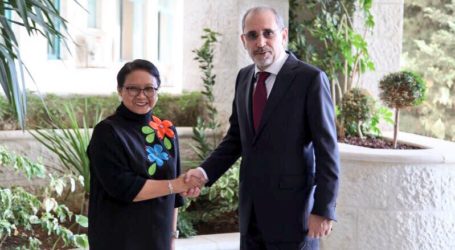Election candidate hopes to draw Palestinian voters out of shadow
 Jerusalem, 29 Muharram 1434/13 December 2012 (WAFA/MINA) – One Palestinian candidate in Israeli elections aims to lead his community out of the margins of Israeli politics — saying their interests have been overshadowed for too long by the Israeli-Palestinian conflict.
Jerusalem, 29 Muharram 1434/13 December 2012 (WAFA/MINA) – One Palestinian candidate in Israeli elections aims to lead his community out of the margins of Israeli politics — saying their interests have been overshadowed for too long by the Israeli-Palestinian conflict.
Atef Krinawi says he would even be willing to make an unprecedented electoral alliance with Israeli Prime Minister Benjamin Netanyahu’s right-wing Likud, the party to which he once belonged.
His success or failure in the Jan. 22 election could be a bellwether for the position of Israel’s 20-percent Palestinian minority.
Krinawi argues that many Palestinians want greater integration in Israel but are eclipsed, in public discourse, by those who identify more with their kindred Palestinians and anti-Zionism.
“Arab leaders have not been making demands for fair allocation of funds, or any other demand for that matter. All they do is fight,” the 42-year-old Krinawi told Reuters quoted by WAFA Palestinian News Agency.
“People are thirsty for equality. I want to enter this government and demand full rights, peacefully.”
A Haifa University survey published on Dec. 11 found that, when asked what issues topped their agenda, 47 percent of Palestinian respondents listed unemployment, housing and education. Only 8 percent cited the Palestinians.
“Israelis and Palestinians should be left to sort out their own problems,” said Krinawi, who in his electioneering has spoken of Israel’s Palestinian population and Jews as being “the same people”.
Krinawi predicts that his newcomer “Hope for Change” party will garner as many as 10 of the 120 seats in parliament – the same number now held by Palestinian lawmakers from three leftist parties, which have invariably sat in the political opposition.
Independent experts have doubts about Hope for Change’s prospects, but most agree that there is disillusionment among Palestinians in Israel over their established politicians’ focus on pro-Palestinian activism at the cost of promoting minority equality.
Palestinians have equal voting rights in Israel but wield limited clout as a group. Some boycott elections, while others support mainstream, Jewish-dominated parties – usually those in the center or left wing.
Coalition
The lack of a unified voice has deepened resentment among Palestinians living in Israel of what they regard as deep-set racial discrimination and neglect when it comes to the disbursement of state benefits.
According to Israel’s National Insurance Institute, 53 percent of Palestinians live below the poverty line, far above the national average of 20 percent. Tel Aviv University’s economics faculty puts the Palestinian unemployment rate at 30 percent in Israel, compared to the national average of 6 percent.
Most Palestinians in Israel, Muslim or Christian, are descendants of those incorporated into the nearly founded state after a 1948 war which drove out hundreds of thousands of others.
Many Jewish citizens express outrage at some Palestinian citizens’ sympathy with today’s struggle against Israeli occupation.
Asked if Hope for Change might one day sit in government with Netanyahu’s Likud, which is running a joint slate with the far-right Israel Beiteinu party and is favored to win next month’s election by a wide margin, Krinawi said: “I would be willing to sit in any coalition.”
Yet Krinawi and more seasoned Palestinian politicians in Israel must first overcome apathy and disenchantment spreading in their electorate.
The Haifa University poll found 67 percent of respondents lacked confidence in Palestinian parties in Israel, and that only half planned to vote, a slight drop from the last election in 2009. Eighty-three percent said they did not trust the Israeli government.
Krinawi has dangled promises such as improving the roads of Palestinian towns in Israel and establishing Israel’s first Arab university.
“People are in despair, but we want to restore their faith and give them a new sense of hope,” he said. (T/R-012/R-006)
Mi’raj News Agency (MINA)






